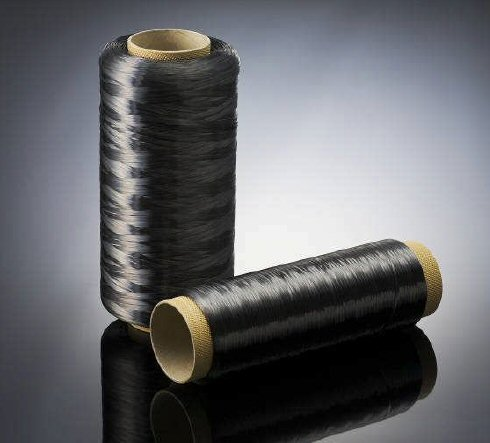
Mitsubishi reports that, because of its high cost, the current product type DIALEAD K13C2U has been limited to applications such as heat release materials for electronics devices loaded into artificial satellites. It has a tensile modulus of 900 GPa) and excellent thermal conductivity of 620 W/mK, almost triple that of aluminium, says Mitsubishi.
|
There are currently two main classifications of carbon fibre: polyacrylonitrile (PAN)-based and pitch-based. Since pitch-based carbon fibre has excellent tensile modulus (rigidity) and heat conductivity, it is possible to produce carbon fibre reinforced plastics (CFRP) with the near zero coefficient of thermal expansion. However, their high rigidity that makes it difficult to handle pitch-based carbon fibre during secondary processing, and the higher price of the product compared to that of metallic materials and PAN-based carbon fibre presents challenges for the carbon fibre manufacturers to expand the market. |
| Source: Mitsubishi Plastics |
The significant reduction of production costs, while keeping the same level of modulus and thermal conductivity, for the new DIALEAD K13C6U product is expected to expand its application into parts and materials for electronic devices for light/small aircraft, heat sinks, LEDs, and automobiles.
Production efficiency has been raised by tripling the number of filaments per fibre bundle to 6000 (6K) from 2000 (2K) by optimisation of graphitisation processes. As a result of this, production costs have been almost halved.



